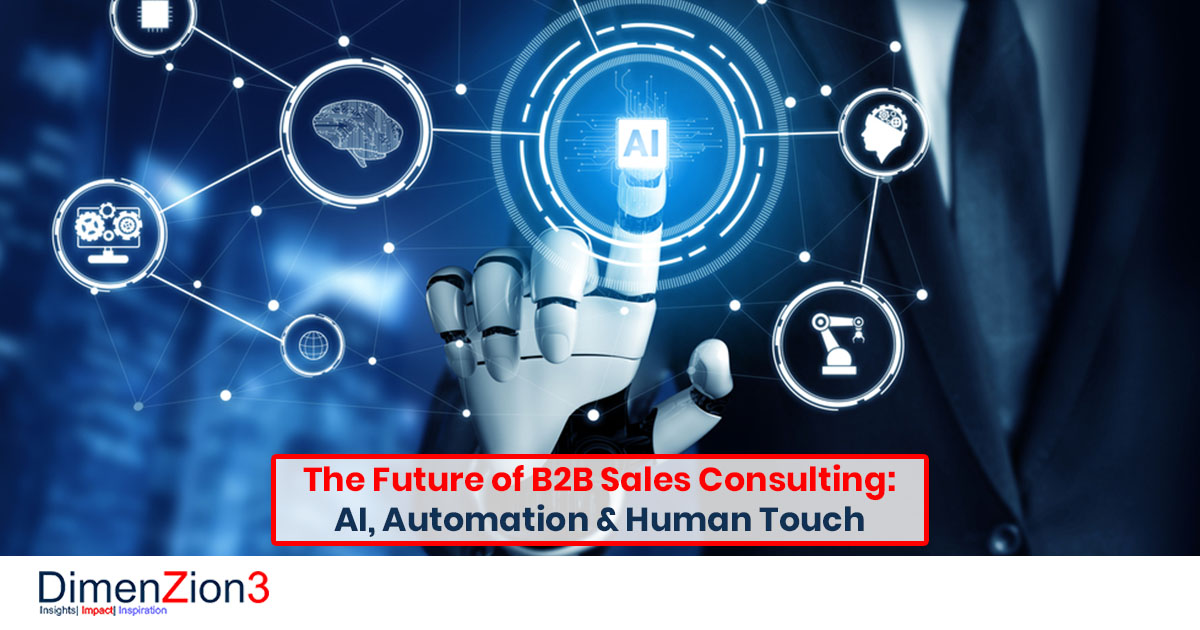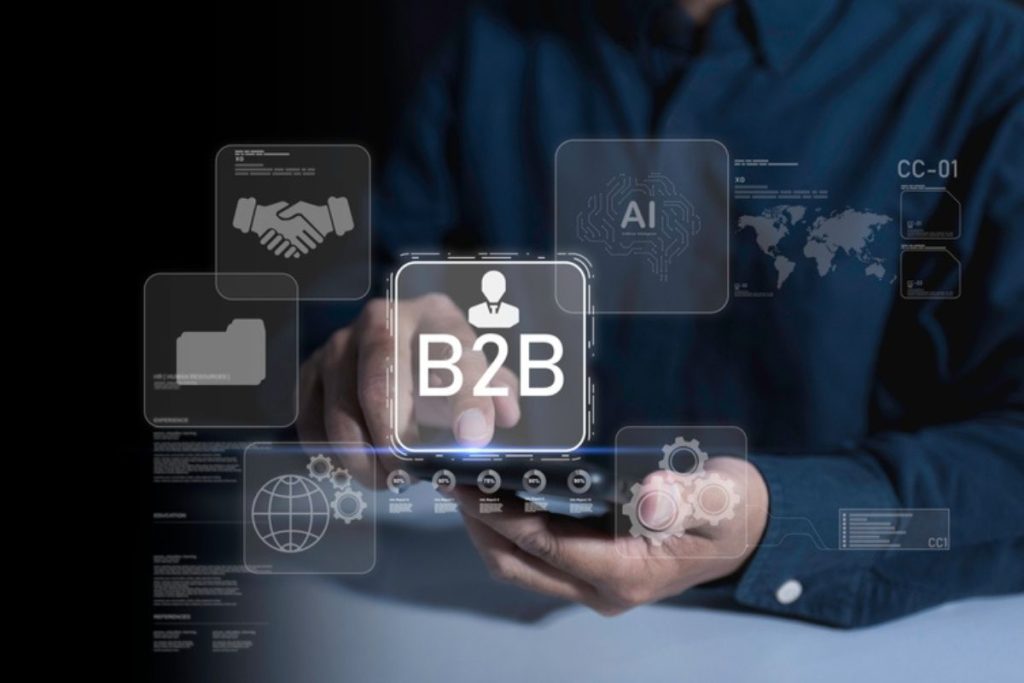AI Automation for B2B: Strategies to Improve Your Company Efficiency
AI automation in the B2B sector provides a pivotal possibility for organizations to boost their performance. By enhancing and streamlining procedures decision-making, businesses can attain significant performances. The effective assimilation of AI requires cautious factor to consider of various aspects. Understanding which locations to automate and picking appropriate tools are just the start. The possibility for transformation increases essential questions regarding implementation and ongoing analysis. What techniques will assure lasting success in this advancing landscape?
Recognizing AI Automation in B2B Context
As businesses progressively seek efficiency and technology, understanding AI automation in the B2B context becomes important. AI automation leverages advanced modern technologies to improve procedures, improve decision-making, and boost general productivity. By incorporating AI devices, companies can optimize procedures such as supply chain management, customer relationship management, and data analysis. These innovations can examine huge quantities of information swiftly, giving actionable insights that drive calculated efforts. In addition, AI-driven automation minimizes human mistake and liberates staff members to focus on more complicated tasks. By cultivating cooperation in between human intelligence and device capabilities, businesses can attain an one-upmanship. Ultimately, understanding AI automation is crucial for B2B organizations aiming to grow in a significantly electronic marketplace.
Identifying Locations for Automation
In the mission for effective AI automation in B2B, it is important to recognize certain areas where automation can yield substantial benefits. This includes reviewing job monotone, checking out chances for information handling, and determining process bottlenecks. By focusing on these aspects, companies can simplify operations and enhance productivity.
Task Repetitiveness Assessment
Job monotone evaluation plays a vital role in recognizing areas ripe for automation within B2B procedures. This process involves examining daily tasks to establish which are time-consuming and repeated, therefore impeding efficiency. By scrutinizing process, businesses can identify particular features that need extreme manual input, such as information entrance, invoice processing, or consumer follow-ups. Recognizing these recurring jobs allows organizations to assign sources better, improving total efficiency (AI Automation For B2B). In addition, automation can minimize human error, enhance procedures, and free up workers to concentrate on higher-value tasks. Conducting a detailed task repetitiveness evaluation equips B2B companies to take on targeted automation techniques, eventually driving enhanced performance and affordable benefit in the industry
Information Processing Opportunities
Many data processing chances exist within B2B companies, providing considerable capacity for automation. These chances usually emerge in areas such as information access, billing processing, and client relationship management. By automating data collection and validation procedures, companies can minimize human error and enhance efficiency. Additionally, automating record generation permits teams to gain access to real-time insights, fostering timely decision-making. Inventory management systems can additionally profit from automation, streamlining stock tracking and order processing. Moreover, leveraging AI in data analytics allows businesses to discover trends and patterns that might or else go unnoticed. Inevitably, accepting automation in these locations not only optimizes procedures however also liberates valuable sources, enabling employees to concentrate on calculated efforts that drive growth.
Operations Bottleneck Identification
Recognizing operations traffic jams is an important action in realizing the full benefits of automation within B2B organizations. These bottlenecks usually materialize as hold-ups, source constraints, or ineffective processes that prevent performance. To successfully determine these locations, businesses can carry out extensive evaluations of their workflows, using metrics such as cycle time and throughput. Involving employees in conversations concerning pain factors can additionally offer beneficial insights. As soon as traffic jams are identified, organizations can prioritize them based upon influence and feasibility for automation. By strategically attending to these inefficiencies, B2B companies can improve procedures, enhance partnership, and inevitably enhance total performance. This positive strategy to operations assessment prepares for successful automation campaigns that drive service growth.
Selecting the Right AI Tools and Technologies
As services progressively transform to AI to improve their procedures, choosing the right devices and innovations ends up being crucial for achieving desired outcomes. Organizations must evaluate their specific demands and purposes, taking into consideration variables such as user-friendliness, scalability, and compatibility. A thorough market evaluation can aid identify leading AI services customized for their market. Additionally, companies should assess the technical facilities required to sustain these tools, guaranteeing smooth assimilation with existing systems. Data safety and security and conformity with policies are also critical factors to consider that affect tool option. By focusing on these criteria, firms can make educated choices that drive effectiveness and performance, eventually resulting in boosted service performance. The appropriate AI tools empower companies to innovate and keep a competitive side out there.
Developing a Strategic Execution Strategy
A successful tactical implementation prepare for AI automation in B2B needs clearly specified vital purposes. B2B Growth Consulting. Furthermore, companies must analyze their present capacities to identify voids and possibilities for renovation. Constant monitoring and adjustment of the approach will guarantee placement with advancing service needs and modern technology advancements
Specify Key Objectives
To ensure effective AI automation in B2B atmospheres, specifying essential purposes is vital for creating a calculated implementation plan. Organizations has to determine details, measurable objectives that straighten with their overall organization technique. This quality offers a roadmap for the automation procedure, ensuring that efforts are focused on areas that will certainly produce the highest effect. Trick objectives may consist of boosting operational effectiveness, boosting consumer complete satisfaction, or raising income. Establishing these purposes makes it possible for teams to focus on sources efficiently and track development with time. Additionally, clear objectives assist in much better interaction amongst stakeholders, cultivating collaboration and alignment throughout the organization. Eventually, distinct goals function as the structure for a durable AI automation strategy that drives company performance.
Examine Existing Capacities

Display and Change
Executing AI automation calls for a dynamic approach that highlights continuous surveillance and adjustment - B2B Automation Consulting. Companies must develop a tactical implementation plan check out here that integrates routine examinations of AI efficiency versus predefined metrics. This includes monitoring crucial efficiency indicators (KPIs) to evaluate the efficiency of automation remedies. By examining information, organizations can identify areas for renovation and adjust their AI systems appropriately. Engaging with stakeholders throughout the procedure assures that the automation lines up with company objectives and customer requirements. Furthermore, fostering a culture of flexibility enables firms to respond swiftly to changing market problems and technological developments. Ultimately, recurring tracking and adjustment not just enhance functional effectiveness yet likewise drive sustained organization performance in the affordable B2B landscape
Ensuring Data Quality and Assimilation
As organizations significantly depend on AI automation in B2B processes, guaranteeing information high quality and assimilation ends up being vital for success. High-quality data is vital for exact analytics, notified decision-making, and reliable customer involvement. Data have to be cleaned, standard, and validated to get rid of mistakes and disparities that can cause illinformed insights. Furthermore, smooth integration throughout numerous platforms and systems is vital; inconsonant data silos prevent automation efforts and minimize operational performance. Organizations ought to adopt durable information governance frameworks and use innovative devices to help with data combination while keeping top quality standards. By prioritizing these aspects, organizations can enhance their AI automation initiatives, inevitably leading to enhanced performance and a competitive advantage in the B2B landscape.
Determining Success and ROI of AI Initiatives
Just how can companies properly measure the success and roi (ROI) of their AI efforts? To determine effectiveness, businesses ought to establish clear, quantifiable goals lined up with calculated purposes. Trick efficiency indications (KPIs) such as cost savings, income development, and efficiency renovations can provide useful understandings. Organizations often perform standard analyses before executing AI, enabling them to compare pre- and post-implementation metrics. In addition, analyzing consumer complete satisfaction and engagement can reveal the influence of AI on customer experience. On a regular basis examining these metrics assists in refining AI techniques and guaranteeing alignment with company goals. By utilizing an organized strategy to measurement and analysis, companies can precisely assess the performance of their AI efforts and make educated decisions about future financial investments.
Getting Over Difficulties in AI Adoption

Often Asked Inquiries
How Can AI Automation Improve Consumer Relationship Monitoring in B2B?
AI automation can enhance client relationship administration in B2B by streamlining interaction, giving personalized communications, analyzing customer information for understandings, automating follow-ups, and improving response times, ultimately fostering stronger relationships and driving sales growth.
What Industries Advantage Most From AI Automation in B2B?
Production, money, medical care, and logistics sectors profit most from AI automation in B2B. These markets utilize automation to improve processes, enhance information evaluation, boost client interactions, and eventually enhance operational performance and productivity.
Just How Does AI Automation Effect Worker Roles in B2B Companies?
AI automation changes worker duties in B2B firms by simplifying jobs, lowering recurring job, and enabling team to focus on calculated efforts. This change boosts efficiency and promotes a culture of advancement and versatility.
What Are the Expenses Connected With Executing AI Automation?
The costs related to applying AI automation consist of preliminary software application acquisition, infrastructure upgrades, training expenses, ongoing maintenance, and potential combination challenges. B2B Automation Consulting. Companies should likewise think about long-lasting operational shifts and employee adaptation expenses in their economic preparation
How Can Businesses Make Sure Honest AI Usage in Their Procedures?
Companies can ensure honest AI use by developing clear standards, promoting transparency, conducting regular audits, involving varied stakeholders, and focusing on data privacy. Continual training and recognition programs additionally improve understanding and adherence to ethical techniques.
As organizations increasingly look for effectiveness and advancement, comprehending AI automation in the B2B context becomes vital. In the pursuit for reliable AI automation in B2B, it is necessary to determine particular areas where automation can yield substantial benefits. An effective critical application plan for AI automation in B2B requires clearly defined key purposes. To assure effective AI automation in B2B settings, defining key purposes is necessary for creating a critical implementation strategy. As organizations significantly rely on AI automation in B2B procedures, ensuring information top quality and combination comes to be important for success.